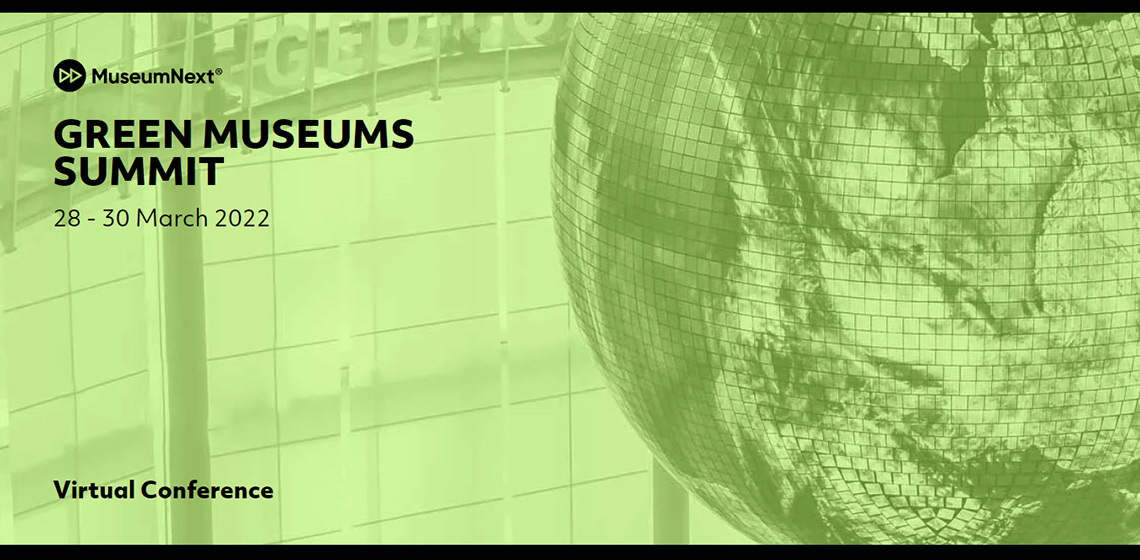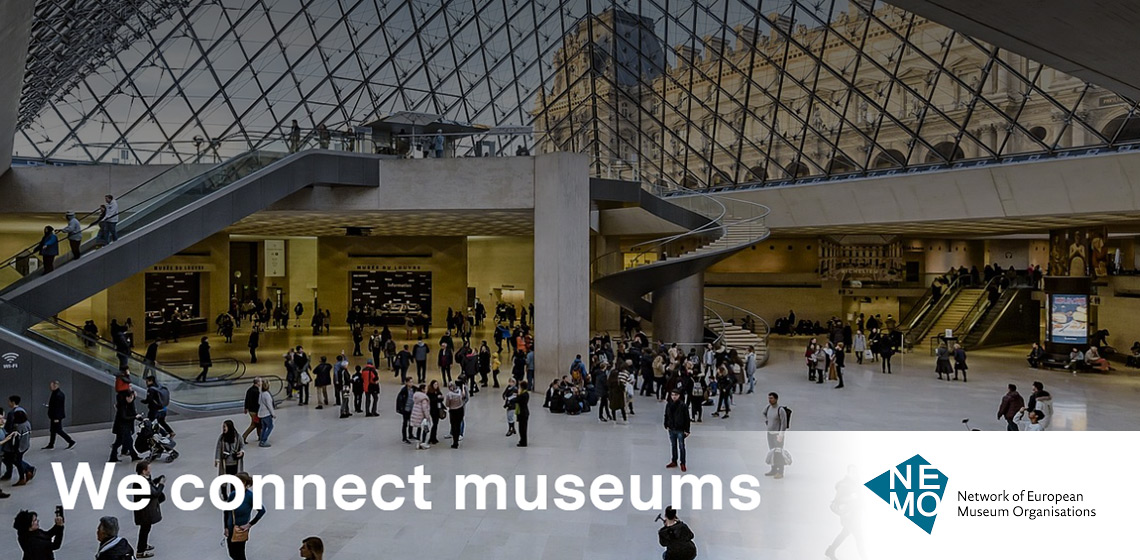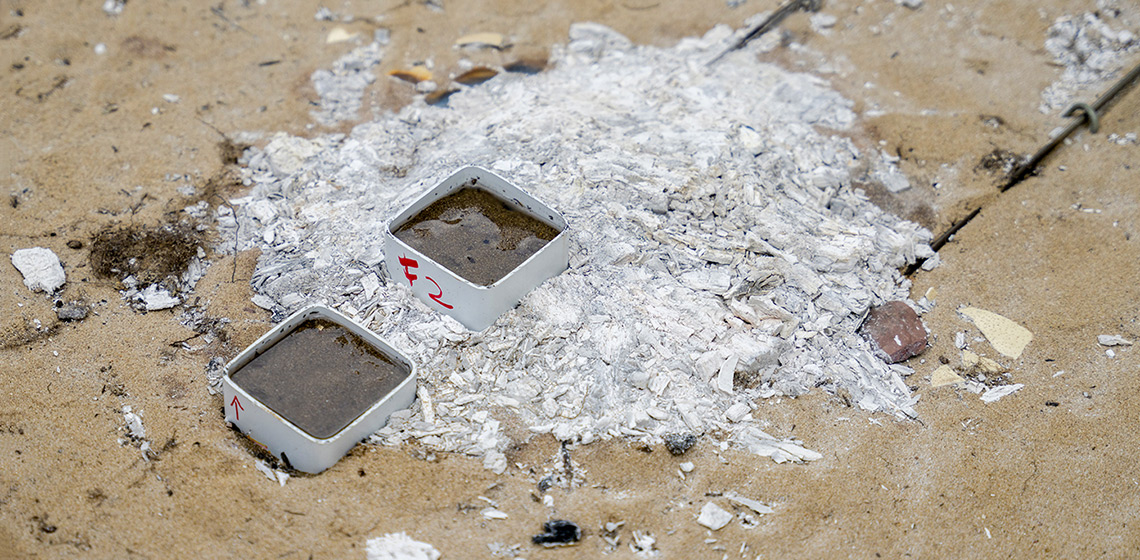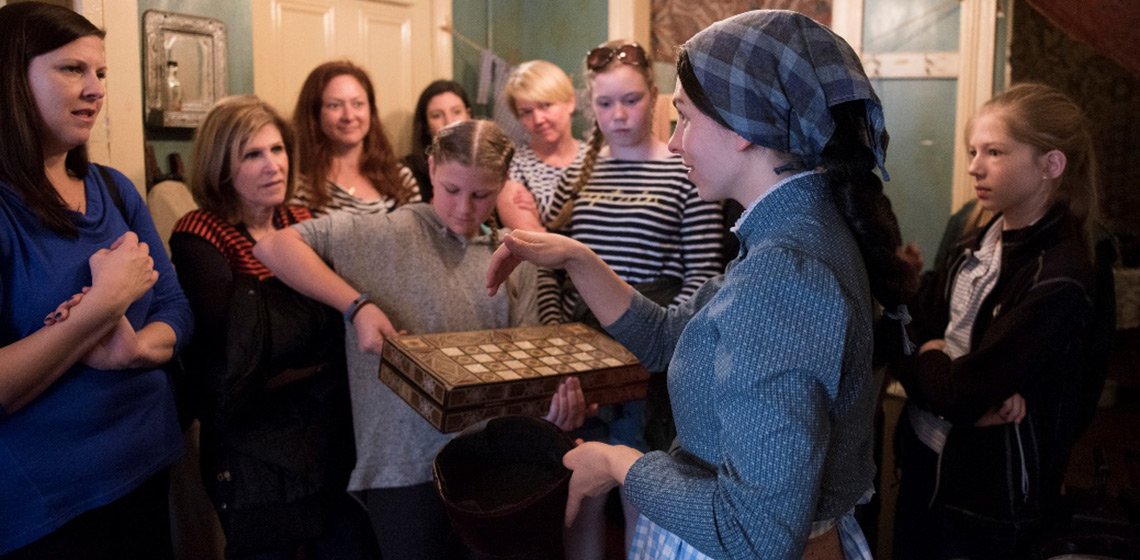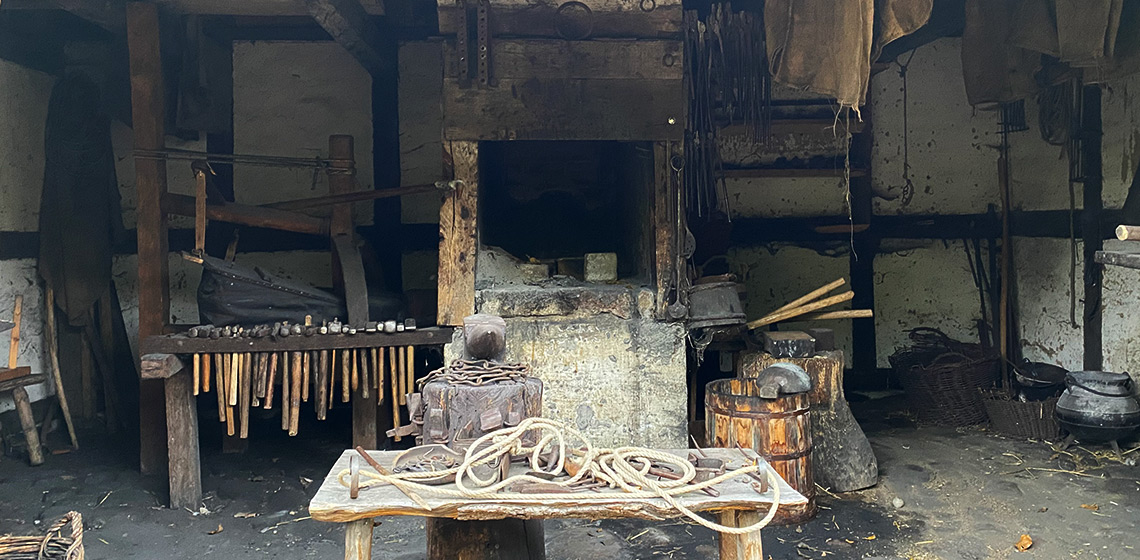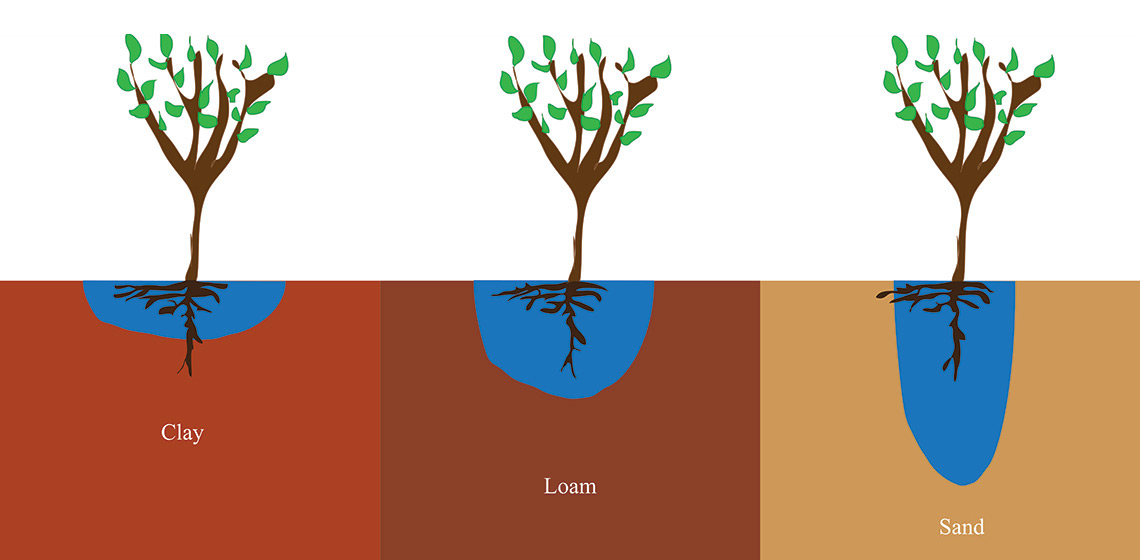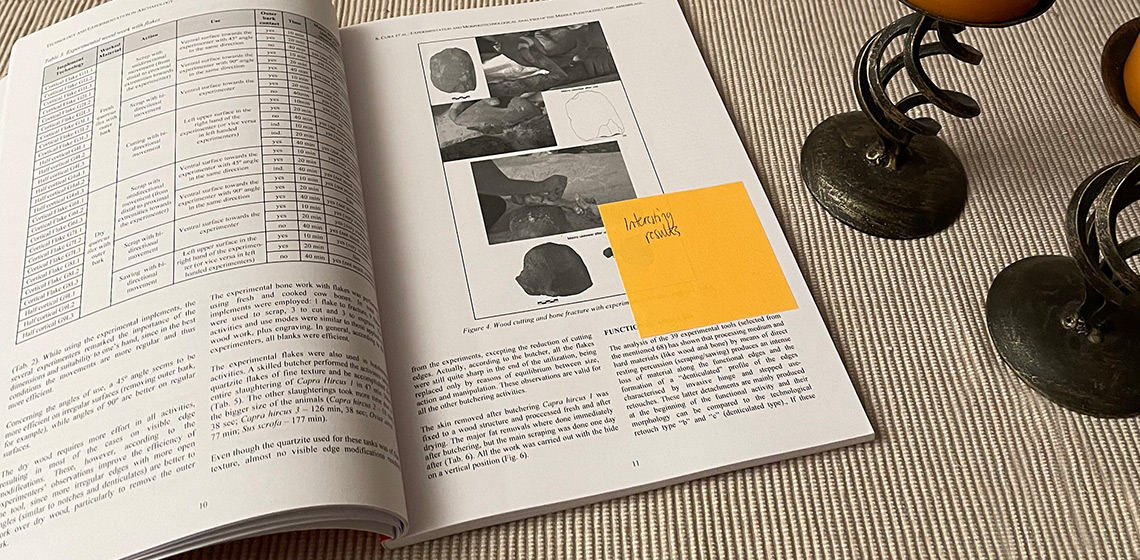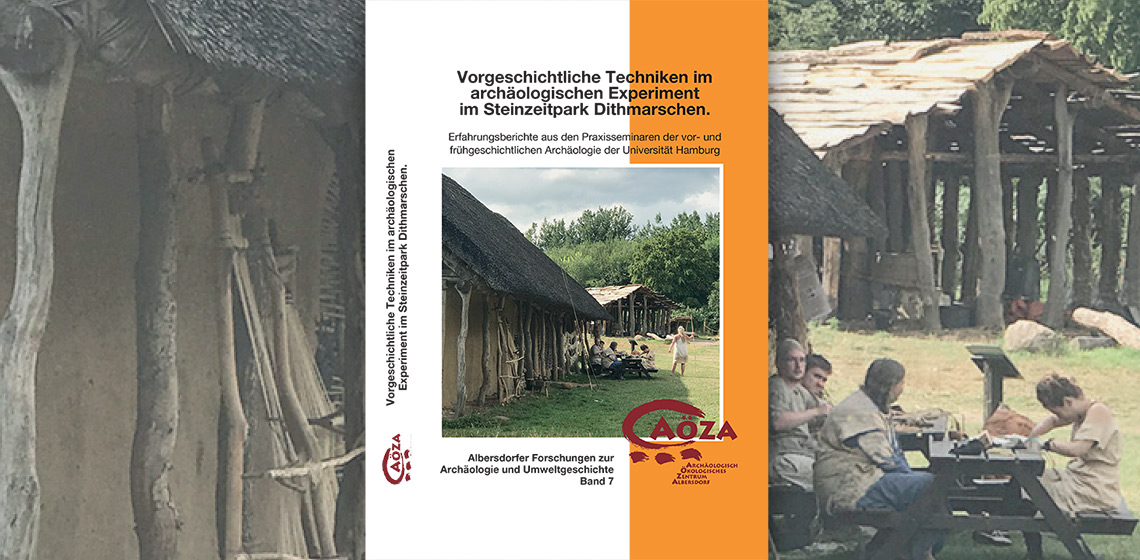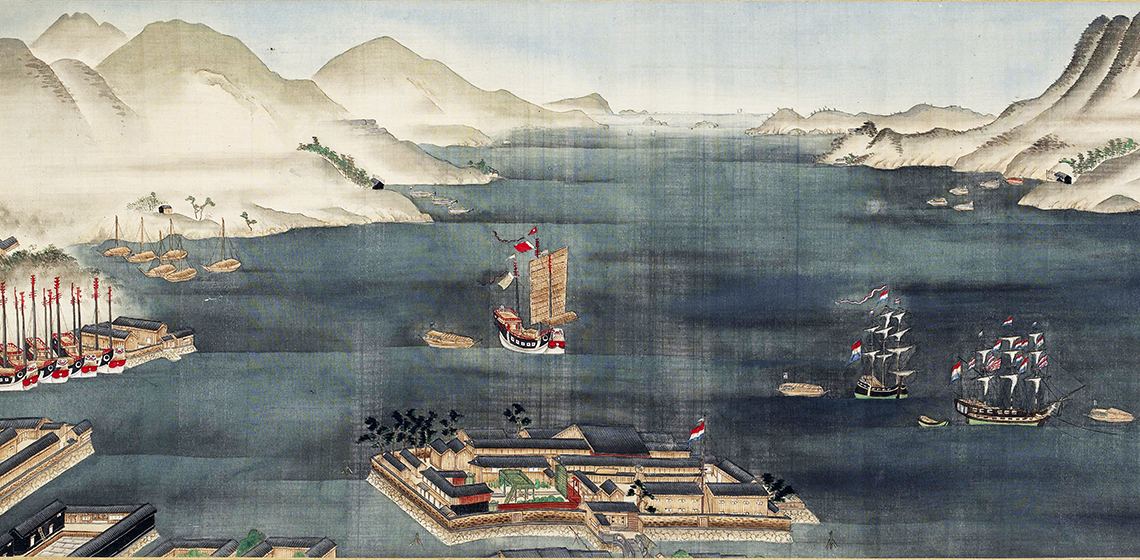Newest Era
Conference Review: ”Green Museum Summit“ organised by MuseumNext
Publication Date
An Inspiring Conference on how Museums can get the Ball Roling to Save the Earth. A virtual format was a fitting setting for an international conference including the adjective “green” in the title as no flights were necessary to get together for the three days from the 28th to the 30th of March 2022...
Event Review: NEMO Training Course 'Re-thinking Museum Practice for 21st Century Visitors' by Lisa Baxter from The Experience Business
Publication Date
Being an academic who loves her job, I tend to forget why I do what I do. When I find myself going down a rabbit hole of fun medieval research and get the urge to create new interpretative materials, guided tours or events (or even get lost in administrative work), I forget to focus on the guest – what they want and what they need. My main focus is getting as much history and love for history into the guests’ minds...
Discussion: Inclusivity in historical interpretation: Who has access and who is erased?
Publication Date
The discussion of ‘authenticity’ in living history has been one of the main themes since the conception of contemporary historical interpretation. Our quest for authenticity should, in my opinion start with a thoughtful discussion: What goal do we want to reach through living history?...
Pilot fires: Preliminary Report from Interdisciplinary Actualistic Fire Experiments
Publication Date
Hearth formation processes are complex. They involve multiple actions, reactions, and activities before, during, and after an active fire and can also impact a wide range of materials and sediments at an archaeological site. Archaeologists approach combustion features and formation processes from multiple analytical perspectives...
Facilitated Dialogue: An Emerging Field of Museum Practice
Publication Date
The notion of dialogue is considered essential in contemporary museology. Since the 1970’s, when Cameron (1971) put forward the idea of museums as forums rather than temples, dialogue is linked to the process of democratization of museum functions and narratives and the inclusion of local communities (Sandell, 2002)...
Event Review: Experimental Archaeology in Denmark 2021
Publication Date
The meeting for Experimental Archaeology in Denmark (EAD) 2021 (Eksperimentel Arkæologi i Danmark) was held between the 5th and 7th of November 2021 at the Medieval Centre at Lolland in Denmark. The Medieval Centre focusses on living history in their museum with houses, staff, and volunteers recreating the environment of the time around the year 1395...
Ancient Technologies in Contexts of the Sustainable Development Goals
Publication Date
#EAC12 World Tour 2021
***The demand for innovative solutions to pressing ecological and societal challenges is on a constant rise. Ancient technologies provide extensive yet underutilized opportunities to help solve such problems. This paper presents three of these technologies and their successful application in modern contexts based on five illustrating case studies...
***The demand for innovative solutions to pressing ecological and societal challenges is on a constant rise. Ancient technologies provide extensive yet underutilized opportunities to help solve such problems. This paper presents three of these technologies and their successful application in modern contexts based on five illustrating case studies...
Book Review: Technology and Experimentation in Archaeology by Sara Cura et al.
Publication Date
Are chaîne opératoire, technology, and experimental protocols and methodology keywords to your research interests? Technology and Experimentation in Archaeology provides international perspectives and excellent case studies on those very subjects...
Book Review: Vorgeschichtliche Techniken im Archäologischen Experiment im Steinzeitpark Dithmarschen by Rüdiger Kelm and Birte Meller (ed.)
Publication Date
The Archaeological Institute of Hamburg University has been offering courses to students in the field of “Experimental Archaeology and Museum Pedagogy”, for over 15 years. These courses take place annually at the Archaeological/Oekological Center Albersdorf (AÖZA)...
Cooperating to Create a Greater Impact - The Case Study of ‘DEJIMA Transcending Time Itself’
Publication Date
“Cooperating to create a greater impact" was a session during the ICOM General Conference in Kyoto, Japan. It was organized by ICOM NL, ICOM JP, DEMHIST, EXARC and the Japan Museum Sieboldhuis. The session took place on September 4, 2019. The session focused on themes of collaboration, cooperation, joint ownership and the possibilities in continued contacts...

